Spam Evangelism


I just had a loooooong comment added to my article explaining the meaning of “IHS”:
What is the difference between a Christian and a Protestant. If we are to FULLY lean on God’s Word, we are to be called “Christian” 3 times in the NT. Obviously, we are no Jewish/Hebrew, and we are the bride, NOT the chosen people of God. I have been called a Protestant and never understood why, as it is a title, NOT a belief. I believe in God’s Word, that Jesus (who is God in the flesh) became man to die for our sins and ONLY through his sacrifice, I am saved, by grace NOT by works “lest any man should boast”. So, biblically speaking, there are only 2 kinds of people; believers and non-believers, aka “sheep and the goat’s. Not sure if I may have missed it in the Hebrew, Greek and Aramaic of being called a Protestant, but there is that.
Blog Comment
Scripture is the authority, as it IS Jesus (John 1:1) and if you do not accept that verse, then you have issues you need to figure out before discussing any scripture or claim (generalization, NOT a finger point). So, if Jesus IS the Word of God, and is God, within his Word (himself) he promises to preserve His Word and never changes. Would we agree on that? Now, if we agree with that, then we can logically conclude, only 1 version of the Word of God that is among men is correct. That meaning; certain versions have pieces added to and others have some taken away. So, then, which ones?!
Now, my next question(s) are as follows, how would a Catholic respond (with scripture and other sources) for the following information:
For the first 280 years of Christian history, Christianity was banned by the Roman Empire, and Christians were terribly persecuted. This changed after the “conversion” of the Roman Emperor Constantine. Constantine provided religious toleration with the Edict of Milan in AD 313, effectively lifting the ban on Christianity. Later, in AD 325, Constantine called the Council of Nicea in an attempt to unify Christianity. Constantine envisioned Christianity as a religion that could unite the Roman Empire, which at that time was beginning to fragment and divide. While this may have seemed to be a positive development for the Christian church, the results were anything but positive. Just as Constantine refused to fully embrace the Christian faith but continued many of his pagan beliefs and practices, so the Christian church that Constantine and his successors promoted progressively became a mixture of true Christianity and Roman paganism.
Most Roman Catholic beliefs and practices regarding Mary are completely absent from the Bible. Where did those beliefs come from? The Roman Catholic view of Mary has far more in common with the Isis mother-goddess religion of Egypt than it does with anything taught in the New Testament. Interestingly, the first hints of Catholic Mariology occur in the writings of Origen, who lived in Alexandria, Egypt, which happened to be the focal point of Isis worship.
The Lord’s Supper being a consumption of the literal body and blood of Jesus is not taught in the Bible. The idea that bread and wine are miraculously transformed into the literal body and blood of Jesus (transubstantiation) is not biblical. However, several ancient pagan religions, including Mithraism, which was very popular in the Roman Empire, had some form of “theophagy” (the eating of one’s god) as a ritualistic practice.
Roman Catholicism has “saints” one can pray to in order to gain a particular blessing. For example, Saint Gianna Beretta Molla is the patron saint of fertility. Francis of Assisi is the patron saint of animals. There are multiple patron saints of healing and comfort. Nowhere is even a hint of this taught in Scripture. Just as the Roman pantheon of gods had a god of love, a god of peace, a god of war, a god of strength, a god of wisdom, etc., so the Catholic Church has a saint who is “in charge” over each of these and many other categories. Many Roman cities had a god specific to the city, and the Catholic Church provided “patron saints” for cities as well.
The idea that the Roman bishop is the vicar of Christ, the supreme leader of the Christian Church, is utterly foreign to the Word of God. The supremacy of the Roman bishop (the papacy) was created with the support of the Roman emperors. While most other bishops (and Christians) resisted the idea of the Roman bishop being supreme, the Roman bishop eventually rose to supremacy, again, due to the power and influence of the Roman emperors. After the western half of the Roman Empire collapsed, the popes took on the title that had previously belonged to the Roman emperors—Pontifex Maximus.
Many more examples could be given. These four should suffice in demonstrating the origin of the Catholic Church. Of course, the Roman Catholic Church denies the pagan origin of its beliefs and practices. The Catholic Church disguises its pagan beliefs under layers of complicated theology and church tradition. Recognizing that many of its beliefs and practices are utterly foreign to Scripture, the Catholic Church is forced to deny the authority and sufficiency of Scripture.
The origin of the Catholic Church is the tragic compromise of Christianity with the pagan religions that surrounded it. Instead of proclaiming the gospel and converting the pagans, the Catholic Church “Christianized” the pagan religions and “paganized” Christianity. By blurring the differences and erasing the distinctions, the Catholic Church made itself attractive to the idolatrous people of the Roman Empire. One result was the Catholic Church becoming the supreme religion in the Roman world for centuries. However, another result was the most dominant form of Christianity apostatizing from the true gospel of Jesus Christ and the true proclamation of God’s Word.
Second Timothy 4:3–4 declares, “For the time will come when men will not put up with sound doctrine. Instead, to suit their own desires, they will gather around them a great number of teachers to say what their itching ears want to hear. They will turn their ears away from the truth and turn aside to myths.”
The comment is what I call “Spam Evangelism”. This is where someone goes around pasting the same text on any website they can find. It usually begins as a simple question but quickly degenerates into a confusing long list of challenges to Catholic doctrine which jump from topic to topic. In this case, it wasn’t even posted on an article which related to Catholic doctrine! When I respond, 99% of the time I never receive a reply…
Fortunately for the person who posted this, Heath, I have a policy of always answering questions! Additionally, I want to provide a resource to anyone else who has this posted on their blogs or social media pages…
Comment Breakdown…
Topic #1: Christianity and Protestantism

The commenter began with this question:
What is the difference between a Christian and a Protestant[?]
Blog Comment
Any dictionary would give a good answer to this question. A Protestant is a kind of Christian whose theology broadly accords with the Fathers of the Reformation. While Protestant theology is not uniform, it is typically characterized by its endorsement of The Five Solas and rejection of Catholicism.
If we are to FULLY lean on God’s Word, we are to be called “Christian” 3 times in the NT.
Blog Comment
I wonder if Heath realizes that we were called “Christian” long before it was written down in Scripture and, not only that, the word was probably initially used as a pejorative?
Obviously, we are no Jewish/Hebrew, and we are the bride, NOT the chosen people of God.
Blog Comment
Our friend might want to see what St. Paul (Colossians 3:12) and St. Peter (1 Peter 2:9) have to say on the matter since they both refer to their Christian recipients in those terms…
I have been called a Protestant and never understood why, as it is a title, NOT a belief.
Blog Comment
As with most titles, the title is used as a placeholder which indicates a set of beliefs – Atheist, Arian, Seballanist, Calvinist etc.
I believe in God’s Word, that Jesus (who is God in the flesh) became man to die for our sins and ONLY through his sacrifice, I am saved, by grace NOT by works “lest any man should boast”.
Blog Comment
This just makes you a Christian. Any Catholic, Orthodox or Protestant should be able to affirm exactly the same thing.
So, biblically speaking, there are only 2 kinds of people; believers and non-believers, aka “sheep and the goat’s. Not sure if I may have missed it in the Hebrew, Greek and Aramaic of being called a Protestant, but there is that.
Blog Comment
Since Protestantism didn’t arise until 1,500 years after Jesus gave the Parable of the Sheep and the Goats, using the term “Protestant” would have utterly bewildered his listeners, particularly since they didn’t even know what a “Christian” was at that time.
Topic #2: The Word of God
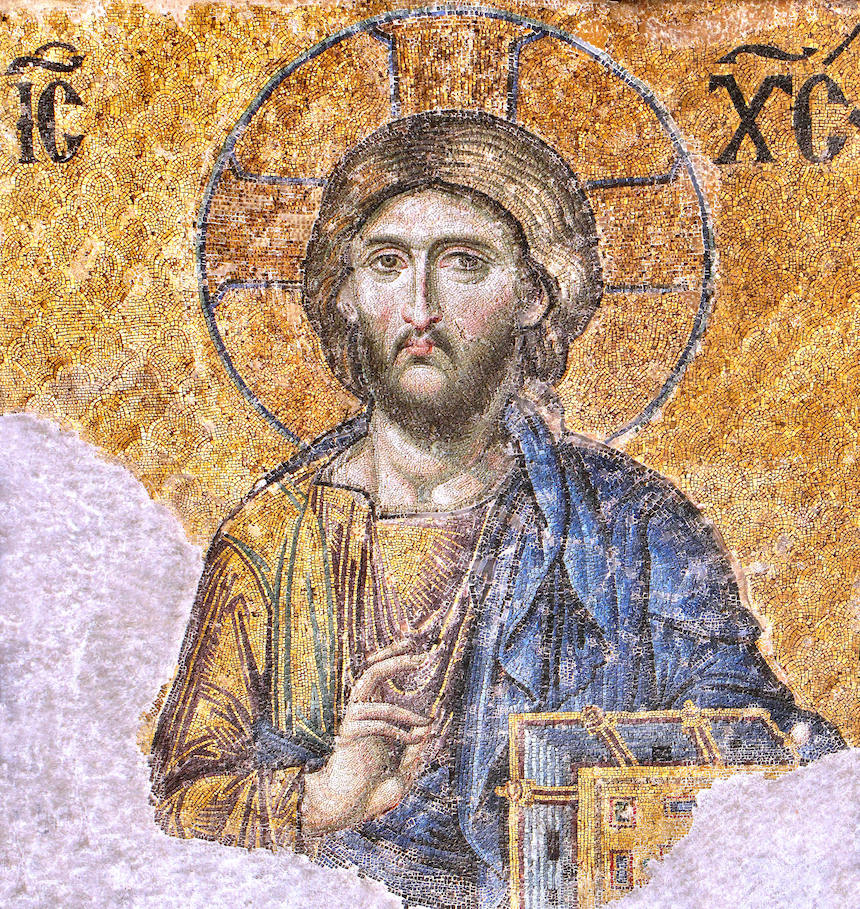
Scripture is the authority, as it IS Jesus (John 1:1) and if you do not accept that verse, then you have issues you need to figure out before discussing any scripture or claim (generalization, NOT a finger point).
Blog Comment
This is rather clumsily expressed, but yes, Jesus is the Word of God and we find God’s Word recorded in Sacred Scripture.
So, if Jesus IS the Word of God, and is God, within his Word (himself) he promises to preserve His Word and never changes. Would we agree on that?
Blog Comment
Another clumsy sentence, but sure, I’d affirm that Jesus is Word of God and the Scripture talks about God’s Word being preserved.
Now, if we agree with that, then we can logically conclude, only 1 version of the Word of God that is among men is correct. That meaning; certain versions have pieces added to and others have some taken away. So, then, which ones?!
Blog Comment
Is he alluding to the fact that the Fathers of the Reformation removed books from the Bible in the 16th Century?
Now, my next question(s) are as follows, how would a Catholic respond (with scripture and other sources) for the following information:
Blog Comment
I’m not entirely sure what that preamble was all about, but it seems that we’re now changing subject…
Topic #3: The Early Church
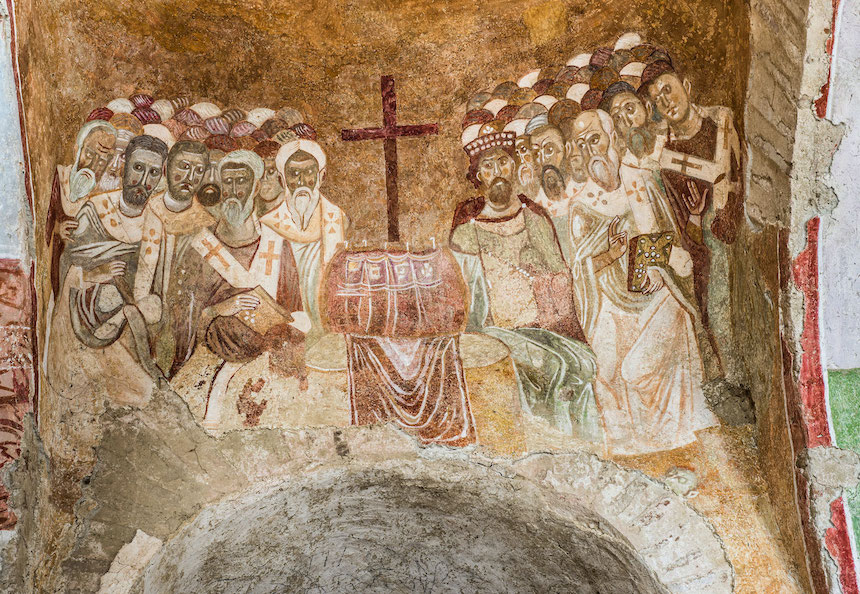
For the first 280 years of Christian history, Christianity was banned by the Roman Empire, and Christians were terribly persecuted.
Blog Comment
This is correct. However, I wonder if Heath has ever read the writings of the Christians during that era? I ask this because when I read them they sound awfully Catholic…
This changed after the “conversion” of the Roman Emperor Constantine.
Blog Comment
Technically he only completed his conversion with his deathbed baptism, but okay…
Constantine provided religious toleration with the Edict of Milan in AD 313, effectively lifting the ban on Christianity. Later, in AD 325, Constantine called the Council of Nicea in an attempt to unify Christianity. Constantine envisioned Christianity as a religion that could unite the Roman Empire, which at that time was beginning to fragment and divide. While this may have seemed to be a positive development for the Christian church, the results were anything but positive. Just as Constantine refused to fully embrace the Christian faith but continued many of his pagan beliefs and practices, so the Christian church that Constantine and his successors promoted progressively became a mixture of true Christianity and Roman paganism.
Blog Comment
Here our friend makes an unsupported assertion. I’ve already pointed to the evidence that the Early Church was Catholic. What evidence does he have?
Topic #4: The Mother of God
Most Roman Catholic beliefs and practices regarding Mary are completely absent from the Bible. Where did those beliefs come from? The Roman Catholic view of Mary has far more in common with the Isis mother-goddess religion of Egypt than it does with anything taught in the New Testament.
Blog Comment
Once again he makes an assertion, but doesn’t actually give any evidence to support the claim.
Interestingly, the first hints of Catholic Mariology occur in the writings of Origen, who lived in Alexandria, Egypt, which happened to be the focal point of Isis worship.
Blog Comment
This is both misleading and demonstrably false.
Why do I think it’s misleading? In the previous paragraph he had been contrasting the “good” Church prior to Constantine with the “bad” Church which came afterwards. Someone reading his comment would naturally conclude that Origen was one of those nasty theologians who came after Constantine. However, he didn’t, he died in AD 254. This was before Constantine was even born. As a result, his argument backfires, since he is telling us that devotion to Mary appeared early in Church history, long before the rise of Constantine!
But why did I also say that it’s demonstrably false? Off the top of my head I can think of two sources which speak of Mary in a Catholic manner which both predate Origen. The first The Protoevangelium of James which speaks, among other things, of her perpetual virginity. There is also Irenaeus of Lyons who, in his Against Heresies, starts to unpack the theology of Mary as “The New Eve”, which is the foundation for all Marian theology. Not only do these sources predate Origen, there are several others which are contemporaneous with Origen, such as Gregory the wonderworker’s homily where he refers to her as Theotokos and an early Christian hymn, Sub Tuum Praesidium, which asks for her intercession.
Topic #5: The Eucharist

The Lord’s Supper being a consumption of the literal body and blood of Jesus is not taught in the Bible. The idea that bread and wine are miraculously transformed into the literal body and blood of Jesus (transubstantiation) is not biblical.
Blog Comment
Apart from…
- Jesus telling us so in plain terms at the last supper (Matthew 26, Mark 14, Luke 22)
- Jesus repeatedly affirming that His flesh is “real food” and His blood is “real drink” in the Bread of Life Discourse. He even says that we need to consume his flesh and blood in order to have eternal life. He couldn’t have used more explicit and emphatic language.
- St. Paul’s dire warnings (1 Corinthians 10)
However, several ancient pagan religions, including Mithraism, which was very popular in the Roman Empire, had some form of “theophagy” (the eating of one’s god) as a ritualistic practice.
Blog Comment
Once more we have bad history. The Mithraism of which he is speaking postdates the rise of Christianity. The great Christian apologist and Roman martyr, Justin, mentions the Mithras copycats when he writes a defense of Christianity to the Emperor Antionius Pius around AD 150-155. After describing the Mass in perfect detail, Justin says:
This the wicked devils have imitated, commanding the same thing to be done in the mysteries of Mithras. There, in the mystic rites of initiation, bread and a cup of water are placed amid certain incantations. This you already know or can discover
St. Justin Martyr, First Apology (AD 155)
I do wonder why this commenter keeps looking to Pagans for explanations rather than to Christians. For example, if he read the writings of Ignatius of Antioch, Bishop and Martyr, he would know how the Early Church viewed the Eucharist:
Let no man deceive himself: if any one be not within the altar, he is deprived of the bread of God …He, therefore, that does not assemble with the Church, has even by this manifested his pride, and condemned himself…[see to it] that you obey the bishop and the presbytery with an undivided mind, breaking one and the same bread, which is the medicine of immortality, and the antidote to prevent us from dying, but [which means] that we should live for ever in Jesus Christ
St. Ignatius of Antioch, Letters to the Ephesians, Philadelphians, and Smyrnaeans (AD 107)
Take heed, then, to have but one Eucharist. For there is one flesh of our Lord Jesus Christ, and one cup to [show forth ] the unity of His blood; one altar; as there is one bishop, along with the presbytery and deacons, my fellow-servants: that so, whatsoever you do, you may do it according to [the will of] God
[The heretics] abstain from the Eucharist and from prayer, because they confess not the Eucharist to be the flesh of our Saviour Jesus Christ, which suffered for our sins, and which the Father, of His goodness, raised up again. Those, therefore, who speak against this gift of God, incur death in the midst of their disputes. But it were better for them to treat it with respect, that they also might rise again…
Topic #6: Saints

Roman Catholicism has “saints” one can pray to in order to gain a particular blessing.
Blog Comment
What we do is ask for is their intercession, just in the same way that you might ask a friend at your church to pray for you. The Saints have no power in and of themselves.
For example, Saint Gianna Beretta Molla is the patron saint of fertility.
Blog Comment
Note the careful word choice here in an attempt to try and draw a connection between ancient Pagan fertility gods and the 20th Century Christian who is the Patroness of Doctors, Mothers and Unborn children…
Francis of Assisi is the patron saint of animals. There are multiple patron saints of healing and comfort. Nowhere is even a hint of this taught in Scripture.
Blog Comment
Hardly surprising since Francis lived in the 13th Century!
Just as the Roman pantheon of gods had a god of love, a god of peace, a god of war, a god of strength, a god of wisdom, etc., so the Catholic Church has a saint who is “in charge” over each of these and many other categories. Many Roman cities had a god specific to the city, and the Catholic Church provided “patron saints” for cities as well.
Blog Comment
Once again our friend goes to unnamed Pagan sources rather than to Christian writings. Aside from the fact that we find saintly intercession in the Book of Revelation. We find it also in the Shepherd of Hermas (AD 80), Clement of Alexandria (AD 208), Origen (AD 233), Cyprian of Carthage (AD 253) and Methodius (AD 305). We also find requests for intercession on Christian gravestones of this era. We also find related practices, such as the veneration of relics and saint feast days which are attested to in the martyrdom of Polycarp (AD 155).
Topic #7: The Papacy
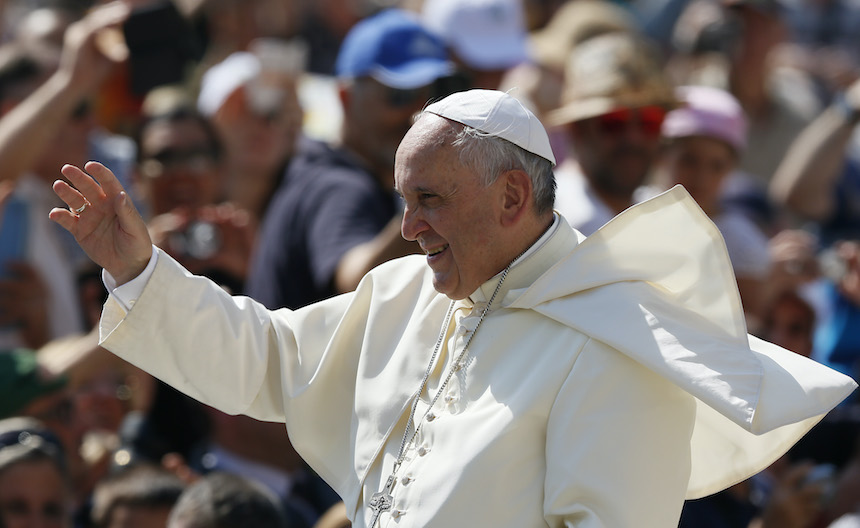
The idea that the Roman bishop is the vicar of Christ, the supreme leader of the Christian Church, is utterly foreign to the Word of God.
Blog Comment
Our friend doesn’t seem to like the title “vicar of Christ”, yet St. Paul says that every Christian is an ambassador for Christ (2 Corinthians 5:20, Ephesians 6:10), which is essentially the same function as a vicar, just in a more general sense.
I do find it strange though, that he thinks that the idea of having a leader of the Church is “utterly foreign to the Word of God” when it is very clear from Scripture that Peter fulfilled this role in the life of the Early Church, an authority given to him by Christ no less (Matthew 16)!
The supremacy of the Roman bishop (the papacy) was created with the support of the Roman emperors. While most other bishops (and Christians) resisted the idea of the Roman bishop being supreme, the Roman bishop eventually rose to supremacy, again, due to the power and influence of the Roman emperors. After the western half of the Roman Empire collapsed, the popes took on the title that had previously belonged to the Roman emperors—Pontifex Maximus.
Blog Comment
Once again Heath seems unaware of Christian history. Does he know that Pope Clement intervened in the dispute in the Corinthian Church over a thousand kilometers away, even while John was at nearby Patmos? He’ll also find more support for the Catholic position in pre-Constantinian writers: Hermas, Ignatius, Dionysius, Ireneaus, Eusebius of Caesaria, and Cyprian of Cathage. I think one example will suffice:
The Lord says to Peter: “…upon this rock I will build my Church” . . .On him he builds the Church, and to him he gives the command to feed the sheep, and although he assigns a like power to all the apostles, yet he founded a single chair [cathedra], and he established by his own authority a source and an intrinsic reason for that unity. Indeed, the others were that also which Peter was [i.e., apostles], but a primacy is given to Peter, whereby it is made clear that there is but one Church and one chair. So too, all [the apostles] are shepherds, and the flock is shown to be one, fed by all the apostles in single-minded accord. If someone does not hold fast to this unity of Peter, can he imagine that he still holds the faith? If he [should] desert the chair of Peter upon whom the Church was built, can he still be confident that he is in the Church?
St. Cyprian, The Unity of the Catholic Church 4 (A.D. 251)
Concluding Remarks
Assuming what you’re trying to prove…
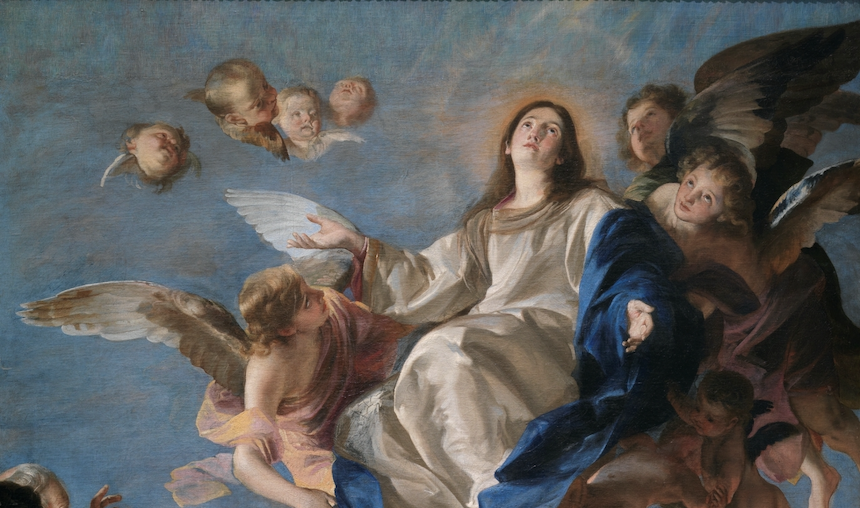
Many more examples could be given. These four should suffice in demonstrating the origin of the Catholic Church. Of course, the Roman Catholic Church denies the pagan origin of its beliefs and practices. The Catholic Church disguises its pagan beliefs under layers of complicated theology and church tradition. Recognizing that many of its beliefs and practices are utterly foreign to Scripture, the Catholic Church is forced to deny the authority and sufficiency of Scripture.
Blog Comment
Notice here that our friend hasn’t actually offered evidence for his claims, simply assertions. Likewise, he assumes Sola Scriptura in his approach. He assumes that all Christian doctrine and practice should be explicitly given in Sacred Scripture. However, I can guarantee that he can’t point to a passage in Scripture which affirms this because such a passage does not exist.
Sawing off the branch where you’re sitting…

The origin of the Catholic Church is the tragic compromise of Christianity with the pagan religions that surrounded it. Instead of proclaiming the gospel and converting the pagans, the Catholic Church “Christianized” the pagan religions and “paganized” Christianity. By blurring the differences and erasing the distinctions, the Catholic Church made itself attractive to the idolatrous people of the Roman Empire. One result was the Catholic Church becoming the supreme religion in the Roman world for centuries. However, another result was the most dominant form of Christianity apostatizing from the true gospel of Jesus Christ and the true proclamation of God’s Word.
Blog Comment
The concluding paragraph introduces two big problems for this commenter…
- The first problem is that he is effectively saying that “real” Christianity disappeared from the Earth until the Reformation, despite the promises of Christ not to abandon His Church. This is the same belief as the Mormon Church. This means that, for the majority of Christian history, there has not been “real” Christianity. This reflects very poorly on Jesus’ choice of Apostles and their ability to teach the Faith, given that they produced successors who, despite enduring unimaginable persecution by the Roman State, immediately fell into apostasy, with no authentic Christianity to speak against them.
- The second problem is that if Heath truly believes that the Church was compromised with Constantine, how can he trust such a Church with the discernment of the Biblical canon and preservation of the Biblical text? After all, would you trust apostates to discern, assemble and preserve your Scriptures?
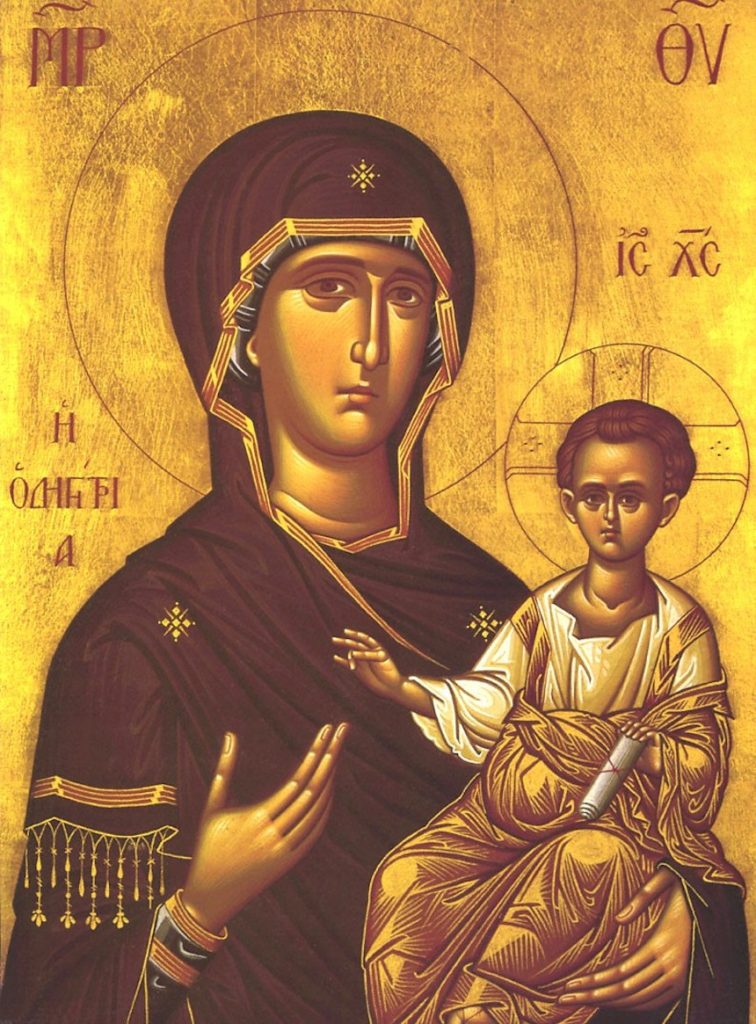
The writer you are endeavoring to refute is mostly covering well known ground, albeit with some strange sentence structure and weaker presentation than the classic differences in faith between the Roman Church and “Protestantism.” It’s a bit disappointing that the form of these arguments you chose to respond to is a weak explication of those points. Shouldn’t you deal with the strongest, clearest argument of those you disagree with?
I don’t want to say my presentation is flawless, but I would like to bring some things to light.
Historically, isn’t the Vicar of Christ title a recent innovation? I.E. Did it not originate with Gelasius I in the late 6th century and get popularized by the fraudulent Donation of Constantine document of the 8th century? If so, what is the warrant for using the title as you do, much less being dismissive of disagreement?
Logically, you argue that the Vicar of Christ title is justified by the fact that Christians are ambassadors for Christ, yet you would not have all Christians called vicars, would you? Even worse, you may not be able to prove that the current “Pope” is a Christian since he stands against many historic teachings of your church, and more importantly, the supreme authority of God’s Word. Can a non Christian be the “presence of Christ?”
Attaching a unique role of Vicar of Christ to a man is unnecessary and wrong since Jesus promised to send his personal representative to guide us–the Holy Spirit.
John 16:7–14 Nevertheless, I tell you the truth: it is to your advantage that I go away, for if I do not go away, the Helper will not come to you. But if I go, I will send him to you. And when he comes, he will convict the world concerning sin and righteousness and judgment:] concerning sin, because they do not believe in me; concerning righteousness, because I go to the Father, and you will see me no longer; concerning judgment, because the ruler of this world is judged.
“I still have many things to say to you, but you cannot bear them now. When the Spirit of truth comes, he will guide you into all the truth, for he will not speak on his own authority, but whatever he hears he will speak, and he will declare to you the things that are to come. He will glorify me, for he will take what is mine and declare it to you. (ESV)
Do you see the great error in giving to a man the titles and roles of God himself? The Holy Spirit IS the presence of God. Jesus IS the bridge between man and God. The Father IS the Holy Father. “I will send Him to you”, “Call no man Father”, “I am the way, the truth, and the life”.
Certainly the church is given leaders. Peter (corrected by Paul, not the supreme corrector and guide of the church, Paul, Barnabas, James the brother of Jesus, Apollos, Timothy and more are God’s gift to the church, as is every leader who follows God’s Word and teaches others to do the same. Unlike all of them, Moses in the Old Testament seems superficially similar to a “Pope” but faithful and meek as he was he did disobey God’s Word on one notable occasion. We must be guided by the Word of God, not put our ultimate faith in fallible men. As Paul said, “follow me as I follow Christ” and “if I or an angel from heaven should preach to you any other gospel, let him be accursed.”
I think your writer is taking issue with the radical level of authority the Roman church sees as being vested almost solely in Peter but then transferred to modern men. I don’t think he’s taking aim at any leadership whatsoever.
Peter, Paul, James all spoke with authority to the churches they wrote to but in dealing with false doctrine, misunderstandings, and issues of church discipline they wrote to the church as a whole. This may not make sense to you as the Roman church defines the church narrowly and asserts many levels of hierarchy that the New Testament never shows. Jesus gave the Apostles a distinct role, as they were his chosen witnesses of his life, teaching, and bodily resurrection but it’s difficult for any of us today to convincingly argue we fit in that group. Interestingly James, the brother of Jesus, is a leader even amongst the Apostles in Jerusalem (Acts 15:12). Paul the Apostle was sent by the Church of Antioch to bring the Gospel to new regions. The Apostles don’t seem to exhibit the extensive (may I say Byzantine?) hierarchy of the Roman Church.
As a Roman Catholic you view those unconvinced of the rightful leadership of a “Pope” as being outside the true church. I believe there are many in the Roman church who do put their trust in Jesus for the forgiveness of their sins though they are hampered by man’s traditions (Jesus is very decided on this point). Since Jesus’ coming there have always been Christians. The church never died. God preserved his word. This happened, not by some well robed magisterium, but by God’s working through ordinary people who spent their lives bringing the Gospel to people that did not know it.
Hey Jim, welcome to Restless Pilgrim
I’ve divided my response into three parts. The first part deals with the title “vicar of Christ”. The second part deals with Pope Francis specifically. Finally, the third part deals with the question of authority more broadly.
I can’t choose who leaves me spam comments on my (now mostly dormant) blog – I just respond to them when they come. Did you really expect me to respond to arguments he didn’t make? Regardless, since you have more confidence in your own arguments, let’s look at them…
I’m also not sure why you emphasize the Donation of Constantine – the phrase “vicar of the Son of God” is only used once there and was a pre-existing title for the Pope. I would even bet that the fiery discoverer of the forgery, Lorenzo Valla, would not deny the Pope this title.
I’m not sure I’d really call the Sixth Century “recent”. How early would it have to be in order to not be called “recent”? As I’m sure you know, the word “trinity” doesn’t appear in Scripture. It doesn’t even come into common usage until quite some time after the Ascension, but that doesn’t mean that the ideas weren’t already there. The same is true for “vicar of Christ”:
1. As I mentioned in my response, St. Paul speaks about being an “ambassador” of Christ (2 Corinthians 5:20, Ephesians 6:10), which seems to me to be a very similar concept – to stand in place of a head of state or kingdom. Christ is the Good Shepherd, yet He tells Peter to be a shepherd in His place (John 21:16-17). There many more Biblical examples which could be given where God calls mortal men to stand in His place to do His work on His behalf, but I will let these suffice.
2. A few decades after the Apostles, St. Ignatius of Antioch writes to the Magnesians (AD 88-107) and tells them that their “bishop presides in the place of God”. This same teaching has been reiterated throughout Church history, most recently in a Dogmatic Constitution on the Church from the recent Second Vatican Council, Lumen Gentium.
I could give a fuller history of the “Vicar of Christ”, but I think the above is sufficient in showing that the concept is found in the Bible and rapidly attributed to all Catholic Bishops and, in particular, the Bishop of Rome.
Sure I would! It’s central to the core doctrines of Christianity – we even call ourselves “Christian” in imitation of “Christ” because, to quote C.S. Lewis, “Every Christian is to become a little Christ. The whole purpose of becoming a Christian is simply nothing else.”
So, we’re all ambassadors and vicars for Christ. We just use the term in a particular sense when it comes to the Bishop of the Rome, much in the same way that every Christian is a priest, yet we use the term in a special way for those who are called to the ministerial priesthood.
Well, Jesus also changed Simon’s name and said that he had the “keys to the Kingdom” and that whatever he bound on earth would be bound in Heaven. What was that all about? Why did Jesus do this? What are these keys? What does it mean to bind something and what does it mean for God to promise to bind the same things in Heaven? Above all, why bother with any of that if the Holy Spirit is going to do everything directly?
It also seems to me that if one were to take your argument on face-value it would prove too much. Actually, this is an argument you even hear from some Protestants: “I don’t need any teacher or anyone in authority over me as I have the Holy Spirit to teach me”. Of course, even aside from Biblical examples and the practice of the Early Church, the history of heresy has shown that position to be very misguided…
In this second section, I’ll address what you say about Pope Francis…
It seems to me that you’d need to first establish which historic teachings you’re referring to and then show Pope Francis rejects them…
Even then, I’m not sure what you think this would prove – Catholics admit to having some abominable Popes in the past, but that didn’t change the fact that they were Popes! If you would like a Biblical example of this principle, note that even though Jesus called the religious leaders of His time hypocrites, He still told the people to obey them because they sat on “the seat of Moses”.
I’m assuming this is alluding to something Pope Francis said. In reply I’d just ask two questions:
1. Are non-Christians made in the image and likeness of God?
2. Can God work through non-Christians to communicate graces to Christians and to achieve His purposes?
It seems to me that, unless you could say “No” to both of these questions, then non-Christians can certainly be “the presence of Christ”, at least in a certain sense. Honestly, on this particular question it does rather seem like you’re looking for something to protest.
In this final section, I’ll look at the broader issues you raised regarding titles, leadership and authority…
Not when God seems very happy bestowing titles and roles upon them.
Wait, are you now denying that Christians can even be the presence of God? Surely not, right? Once again, if your argument is taken at face-value it proves too much.
Sure, but that doesn’t mean that humans can’t be used by God as bridges.
How many people receive the Gospel directly from God? I’m sure it’s not many. I would suggest that most people will talk with a Christian friend or hear a preacher – in both cases, God is using a mere human as a bridge. Once again we return to 2 Corinthians 5:20… “So we are ambassadors for Christ, God making his appeal through us. We beseech you on behalf of Christ, be reconciled to God.”
Okay, but that doesn’t exclude someone from having a biological father who is holy, or for St. Paul to refer to himself as a spiritual father to the Corinthians (1 Corinthians 4:15) or to one of his disciples like Timothy (1 Timothy 1:2) or Titus (Titus 1:4).
I believe you’re under the common Protestant misconception that Catholics believe Popes are infallible in everything they say, impeccable in everything they do, and cannot ever be challenged – none of these statements are true. A lowly nun sent the Pope back to his See in Rome.
It’s interesting you bring up Moses as an example because he was one of the many examples raised by Pope Clement in AD ~97 in his letter to the Corinthian Church where he instructs this wayward congregation to cease from their rebellion and to reinstate their clergy.
That just begs a bunch of questions, such as your basis for Sola Scriptura, as well as how you know what is and is not the Word of God. I would argue that you can’t know it apart from the instrumentality of the Catholic Church which was the Church of history.
Remember that Paul also told the Thessalonians to hold fast to all his teaching, both in Sacred Scripture and Sacred Tradition (2 Thessalonians 2:15). You’re also assuming here that your philosophical presuppositions and Scriptural understandings are the true ones. If they’re not, St. Paul’s condemnation could cut in another direction…
What he did was simply assume that such a level of authority is wrong – he didn’t actually provide any argumentation or an explanation as to what Jesus was doing in Matthew 16.
Here’s a question for you though, what authority does a pastor actually have? I ask this because, in my experience, in the Protestant world he really has none. The individual Protestant chooses his church and pastor based on his own personal theology based on his fallible interpretation of Scripture.
Once he has joined the pastor’s church, what authority does the pastor really have? None, really. All the pastor can do is suggest and present arguments from his interpretation of the Bible, which the individual Protestant is free to reject. If he doesn’t like the interpretation he’s told, he can just reject it and ultimately change congregations if he so chooses. This is the problem with Sola Scriptura – the locus of interpretive authority is in the individual Protestant himself. If nobody is Pope, everybody is Pope.
I think you’re referring here to the letter sent after the Council of Jerusalem and what you are describing here is one of the mechanisms of the Magesterium of the Catholic Church! We have called Ecumenical Councils down through the centuries to deal with doctrinal and disciplinary matters. Is this what your own denomination does?
Through different Ecumenical Councils such as Nicaea, Constantinople, and Ephesus, we have unpacked the Trinity and the natures of Christ, as well as lots of other theology which you’ve inherited from the Catholic Church. In latter councils such as Trent and Vatican I and Vatican II we have addressed the issues surrounding Protestant theology.
It is not the assertion of the Catholic Church that the role of Apostle continues today. The Apostles died and the Bishops took over the running of the Church. Pope Clement also spoke about this in his letter to the Church at Corinth:
“…Our apostles also knew, through our Lord Jesus Christ, and there would be strife on account of the office of the episcopate. For this reason, …they appointed those [ministers] already mentioned, and afterwards gave instructions, that when these should fall asleep, other approved men should succeed them in their ministry.
…Accept our counsel and you will have nothing to regret. If anyone disobeys the things which have been said by [Jesus] though us, let them know that they will involve themselves in no small danger.”
– St. Clement of Rome, Letter to the Corinthians (AD ~97)
That’s because he was the Bishop of Jerusalem.
I think you’re hinting at an argument here but I’m not sure what it is. We see the Apostle Paul go around and establish new congregations and ordain elders to run them. All this seems very Catholic to me…
This isn’t quite right, but St. Cyprian did ask this question in AD 251: “If [someone should] desert the chair of Peter upon whom the Church was built, can he still be confident that he is in the Church?”
Every Catholic who goes to Confession is putting their trust in Jesus for the forgiveness of sins because they have received baptism (a Sacrament instituted by Christ for the forgiveness of sins) and they are going to Confession because they trust Jesus’ power to forgive sins through one he has deputized (John 20:22-23).
I can name many people throughout Christian history who are my heroes: Clement, Ignatius, Polycarp, Justin, Gregory, … Who would you cite from the Second Century onwards as sharing in the same faith as yourself? I ask this because when I look at history, I don’t find it very amenable to Protestant belief or practice.